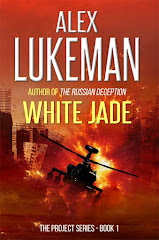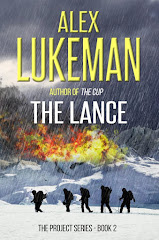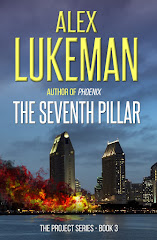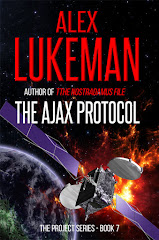Motorcycles
Unless you ride you might find it hard to understand why
motorcyclists are so keen to hop on their bikes. I've been riding motorcycles
since 1957. There were a few years when I didn't have a bike, but for most of
those years I've had something with two wheels and an engine. I even had a bike
when I lived in Spain, a 250 Ducati. I consider that a small motorcycle but it
was large for Spain. It was also a hell of a lot of fun.
Ask a motorcyclist why he loves to ride and he'll tell you it's
because it's fun. He (or she, as the case might be) may also tell you it's
about freedom. When you're on a bike you are on your own with a wonderful sense
of being in control. Maybe that's just an illusion, but motorcycles are better
than psychotherapy for most people who ride. There is something about being out
on the highway with a motorcycle and a beautiful day that clears all the BS
life throws at us right out of our minds.
My first bike was a 1941 Indian Chief. I was sixteen years
old and weighed about 160 pounds. The chief weighed closer to 750. It was a
beast and I didn't like it much when it fell over, which it did once or twice.
Those old bikes are nothing like the machines produced today. For example, there
was no such thing as an auto advance. You controlled advance and retard with a
twist grip on the handlebar. The brakes were 7 inch drums and exciting to use
for such a big machine, meaning that it took a really long time to stop. The
engine was an 80 cubic inch flathead that could kick back and damn near break
your leg if you weren't careful. But once it was up and running it was smooth
and powerful and could take that big bike up to about 110 miles an hour.
The suspension was completely inadequate by today's
standards. It consisted of a leaf spring girder fork in front and a pair of laughable
devices called plunger shocks in the rear. The throttle stayed exactly where
you put it, open, closed or anywhere in between, which meant you had better pay
attention when it was time to stop. The clutch was called a suicide clutch, for
good reason. It was a big, flat plate operated by your foot that stayed where
you put it and wasn't the easiest thing in the world to move. To stop the bike,
you had to disengage the clutch by moving that plate, gear down with a long lever
on the side of the tank, roll off the throttle, reengage, and repeat while you
applied brakes. Harleys of the period were similar to Indians, with everything
generally reversed from the Indians. Of course you had to learn all that. When
I first got on that bike I knew nothing. I'd never ridden a motorcycle.
I bought the bike for seventy dollars. Today that same bike
in exactly the same condition would bring closer to thirty thousand.
The guy I bought it from said, "Here's where you turn
it on. Here's how you turn on the gas. This is the spark advance and retard and
this is the throttle. That's the clutch. You shift using that lever there. You
kick it over here. See you later."
I didn't even know what the spark advance and retard was or
how to use it. Anyway, being young, stupid, and immortal I got on the bike,
managed to get it started and rode it home, in traffic. The battery fell out on
the way.
Cool. I had a motorcycle, a great black monster that bellowed
with a throaty roar through a home made megaphone. I thought it would be easy
to master but I had a lot to learn and no one to show me. There were no
programs for training people in motorcycle safety, no licensing requirements
beyond a driver's license, no helmet laws, no convenient shops in every town where
you could buy everything from a spark plug to a new bike. If you had a bike,
you were on your own.
That suited me just fine. Bikes have always been about
freedom and independence for me. They still are. As long as I can ride I know
I'm not ready for the old folks' home.
It takes a while to make someone a competent rider. It takes
years to make a good one, and until you become competent you are at risk of
serious injury. The only way to learn is through experience. That hasn't
changed, even with all the courses of instruction and modern safety features.
It scares me to see middle aged men having a mid-life crisis on their big
Hondas and Harleys, with the wife on back and a few months of riding under
their belts. I stay well away from them on the road. You can tell when someone
is inexperienced.
I got my first serious lesson in competence about a week
after I got the bike. I was still somewhat tentative with all that power and
potential speed. But I was gaining confidence. The old adage about a little
confidence being a dangerous thing is never more true than when you begin to ride
motorcycles.
I was riding home in traffic going about 50 miles an hour,
following a car ahead of me. I didn't realize that I was too close for the
braking power of the machine. Suddenly the car stopped without warning in the
middle of the road to make a left-hand turn across traffic. Okay, I hit the
brakes. Not much happened. I was still going 50 miles an hour and I was rapidly
closing on his back bumper. I was going to hit him if I couldn't get around
him. To the left was oncoming traffic on the narrow highway. I couldn't go
around that way without being splattered across someone's big chrome grill. Remember,
it's 1957. Lots of chrome, back then.
I had to go right. To the right was a deep ditch with water
in it, faced with a narrow stone wall that came just to the level of the
roadway. Between the car and the drop into the ditch there was very little room,
perhaps a couple of feet. The adrenaline surge that hit me when I realized that
just about lifted me off that big, sprung seat.
I had no choice. I veered right and onto the top of the
stone wall of the ditch. If I went in I wasn't coming out except in an
ambulance. I looked down and saw that the front wheel was half on the wall and
half over the ditch. I was still going almost 50. My arms were locked on the
handlebars. They clipped the passenger side mirror on the car as I went by. I made
it past, pulled back on the highway and accelerated away. About a mile down the
road I began shaking and pulled over.
Lesson number one: always allow more than enough braking
distance between you and things that might hurt you. This is fundamental.
A month later I was taking turns at eighty and throwing
sparks off the muffler. I had learned how to handle the bike and had a good
idea of what it could do. That began a lifelong addiction to speed on two
wheels. I'm a street rider. Others prefer the dirt. Not me. Give me horsepower
and pavement.
The Chief was a great bike, classic American iron. I still
have one of the tank emblems.
I rode it across country, all the way from Philadelphia to
California. That was the America of the old Route 40 and Route 66, legendary
highways that deserve their reputation. I'll never forget coming over a rise in
eastern Colorado and seeing the Rocky Mountains for the first time, marching across
the horizon. The sun was setting behind them, sending rays of light from the snowcapped
peaks. I remember starting down a long, twisting highway toward Salt Lake City,
spread out below in the evening twilight like diamonds on the desert. I
remember being in the middle of Kansas on a sunny day and watching a curtain of
black advance toward me on the highway, a summer storm. When I hit it, it was
like hitting a liquid wall. I was drenched in an instant. I slept that night in
a soggy field. When I woke, it was sunny. I looked around me. I was lying in a
field of marijuana.
That world is gone now and it will never return. I count
myself blessed to have taken that ride. There's nothing like a motorcycle if
you want to really feel and experience the beauty and variety of this place we
call America. That is still true. There are still places where the unspoiled
beauty exists but you have to find them. A motorcycle is one of the best ways
to do that.
I started riding British motorcycles in 1969. My first Brit
bike was a '66 Norton Atlas, a 750 cc vertical twin that vibrated like mad and
handled like a dream. Modern bikes are mostly vibration free, but the old bikes
were a different story. British bikes don't weigh as much as American bikes and
you can find ways to make them even lighter. Set up correctly, they are very
fast and agile and will run rings around their contemporaries. I'm not talking
about modern bikes but motorcycles manufactured up to 1970. For me that's the
cutoff point for classic British bikes. Today I have a 1966 Triumph Bonneville,
a Harley, and a 56 BSA A7.
I've had plenty of non.British bikes. Hondas, Suzuki's, a
BMW,a Ducati, a Laverda and a couple of Harleys. But my real love is the
British machines. There's something about the way they sound, the way they
feel, the way you sit on them. I love the designs, the complexity of British
engineering, often a head scratcher from an American point of view. Take a look
at a Vincent Black Shadow or an Aerial Square Four and you'll see what I mean.
British motorcycles have soul. I never got that feeling from a Japanese bike,
as reliable and trouble-free as they can be. It has nothing to do with the
quality of engineering or performance. It's a feeling. Harley riders feel the
same way. Harleys have soul. It's that indefinable something I call soul that
keeps me engaged with bikes, along with the feeling of aliveness that comes
when you are tooling down the highway at 70 miles an hour.
If you ride long enough you develop an intuitive sense of
hazards and potential danger, what people in the military call situational
awareness. It doesn't require a lot of thought, it just pops into your
awareness. Is there someone in that parked car ready to open a door in front of
you? Is that vehicle going to stop for that yellow light? Is that person going
to turn left in front of you without warning? All of these are real hazards
that can kill you or put you in a hospital. What about those wet leaves or pine
needles on the road? Is that gravel? Sand? Oil? Debris? How deep is that
puddle? That pothole? Are there deer in the woods? You can assume nothing.
Riding a motorcycle develops keen situational awareness that carries over into
driving a car and every other activity in your life. Bikes teach you to
observe.
I've known a lot of bikers over the years, good and bad.
It's too bad that the outlaw biker is the one many people still think of when
they think about motorcycles. It's the Wild One, Sons of Anarchy image. The 1%
is exactly that, a fraction of the motorcycle riding community. Every community
has a piece of it that is not what you would call socially constructive. Motorcyclists
run charity drives for any cause you can think of, contribute all sorts of
services and in general are good people. If you ride a bike, you will meet
people from every walk of life with whom you can connect through your mutual
love of motorcycling. If you go abroad you will find people riding motorcycles
who will be happy to welcome you. Bikers have a common language that goes
beyond nationalities.
If you don't already have one, get a bike and learn how to
ride it. You are in for a great time. The only limits are those you set for
yourself.
Copyright 2019 by Alex Lukeman












